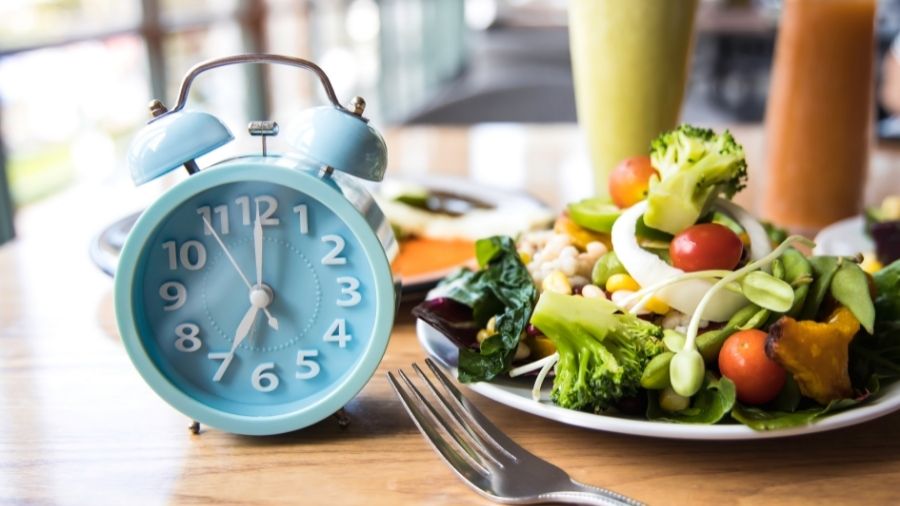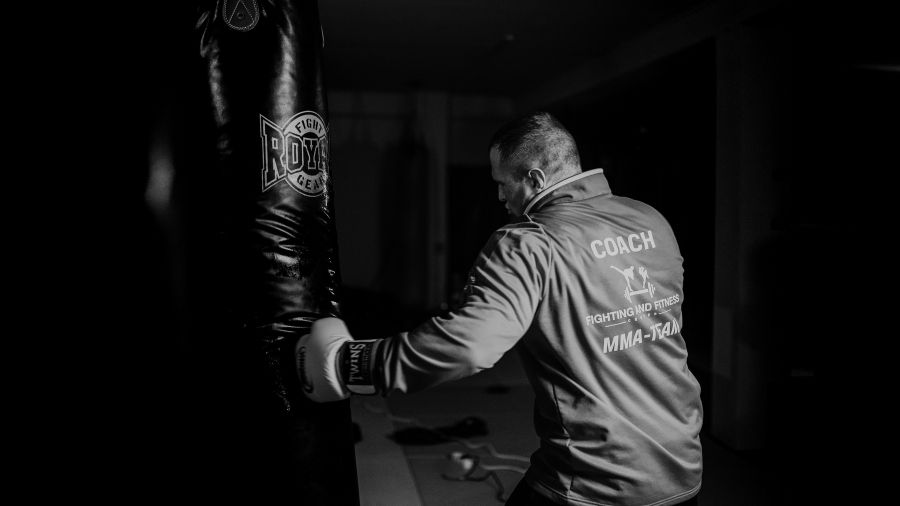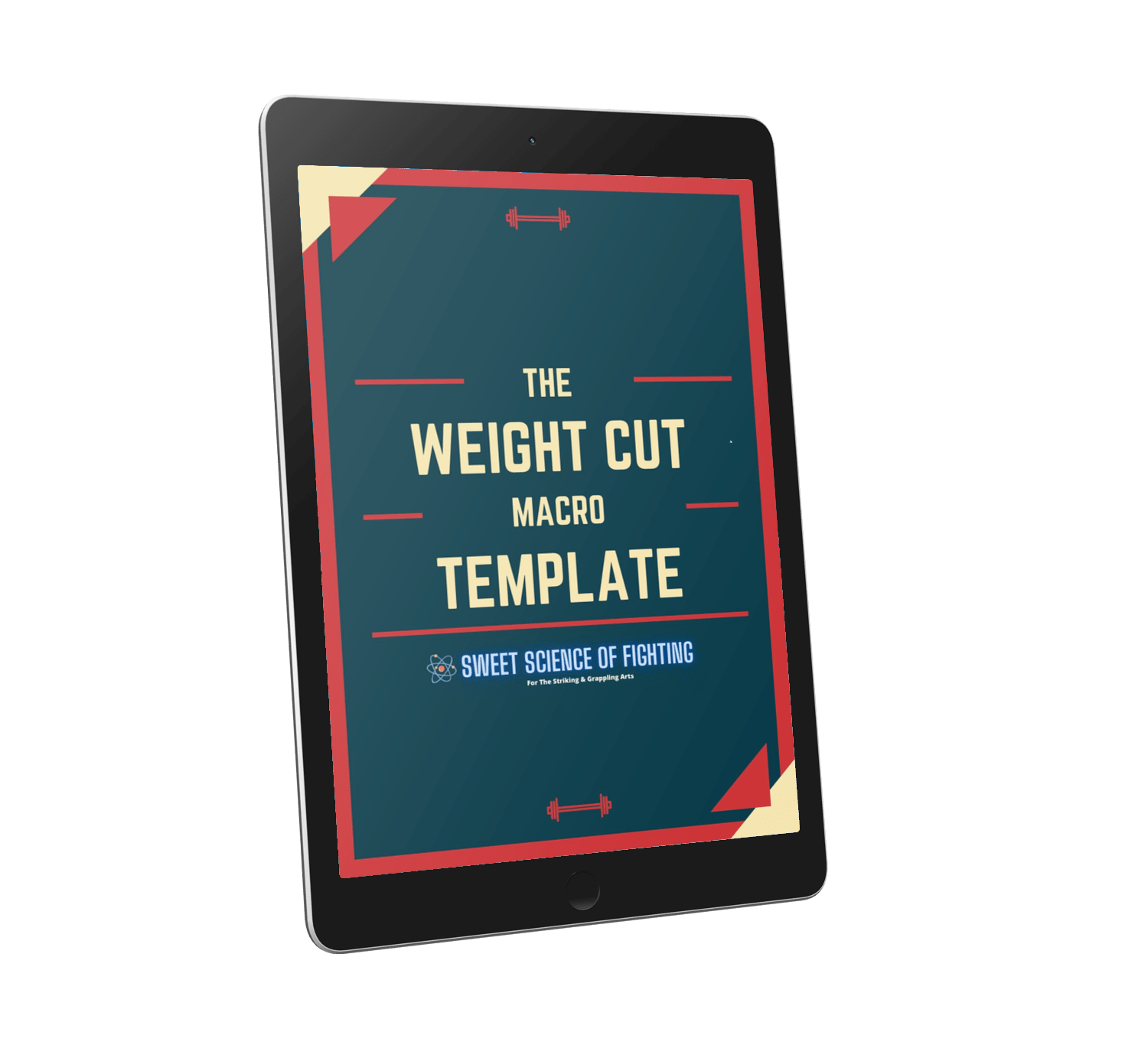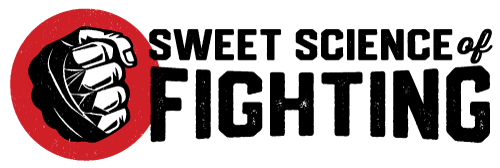A quick search for fighters that use intermittent fasting will bring up the legendary George St Pierre. “If GSP is doing it, so should you” is the common frame of thinking. But as with all world-class athletes, they are great often not because of what they do, but despite what they do.
Intermittent fasting is not good for fighters as not eating in the morning reduces, strength, aerobic endurance, and high-intensity exercise performance which are vital attributes for a fighter.
Before diving deeper into these negatives regarding intermittent fasting, I need to define what intermittent fasting is and what the purported benefits really are.
What Is Intermittent Fasting?

Intermittent fasting involves restricting food intake for a certain period during the day and then eating what you like during a specific feeding window. There are multiple intermittent fasting variations such as the 5:2 diet where 5 days of the week are eating normally and two days are restricted to 500-600 calories per day.
The most popular variation among combat athletes and fitness fanatics is the 16/8 where 16 hours of the day are fasted (water only) with an 8-hour feeding window [1]. The whole idea behind intermittent fasting is to try to replicate how our ancestors ate when food wasn’t so available as it is today.
That is periods of no eating and periods of feasting when they were able to hunt their meat. So, what are the purported benefits of doing this?
Intermittent Fasting Benefits
The major benefits often cited are better weight loss results, reductions in blood pressure, and reductions in cardiovascular disease risk [1]. However, when you dive deeper into the research, these benefits aren’t because of intermittent fasting.
Most notably, when you match caloric intake between groups, a non-time restricted diet results in the same weight loss as an intermittent fasting diet [2]. And the reductions in blood pressure and disease are often improved through weight loss alone.
Safe to say, there may not be anything special about intermittent fasting. So how does it fair for you as a fighter? Should you start or continue your intermittent fasting diet?
Is Intermittent Fasting Bad For Fighters?

As fighters, we’re not so concerned with weight loss outcomes unless we are cutting weight for a fight. But that’s a different topic altogether. What we really care about is performance on the mats, or in the ring or cage. Period.

FREE Weight Cut Template That Automatically Calculates Your Macros
Firstly, let’s look at how fasting may affect your strength. Unfortunately, little research has looked at the effects of intermittent fasting and strength. The only long-term findings are that muscle mass is maintained over 8 weeks when comparing a normal diet to intermittent fasting [3,4].
When looking at the acute effects of fasting on strength (i.e. skipping breakfast then training 2 hours later), the no breakfast group completed 15% fewer back squat reps and 6% fewer bench press reps compared to the group that ate a high carbohydrate breakfast [5].
But strength isn’t the only physical quality that can be impaired. Even when the no breakfast group made up their carbohydrate and calorie requirements at lunch (so their food intake was equal to the breakfast group), the no breakfast group still saw a 3% reduction in average power output during a 20 km cycling time trial [6].
Taken a step further, when the no breakfast group eats more than the breakfast group at lunch, they still see a lower workload over a 30-minute cycling performance test [7]. When looking at long-term fasting, professional Algerian soccer teams were tested before and after 2 weeks of Ramadan [8]. That is, no eating or drinking while the sun is up.
They saw a 20% reduction in endurance capacity. However, not many athletes would do extreme fasts like these unless for religious reasons. Martial arts and combat sports are more than just endurance and strength. For example, many MMA bouts are decided within the 8-14 second high-intensity efforts that occur during a fight [9].
After a 10-day intermittent fast, subjects saw a reduction in high-intensity time to exhaustion cycling and at day 2, a reduction in power during a maximal 30-second cycling Wingate test [10]. When looking at acute high-intensity performance decrements, skipping breakfast resulted in reduced rowing time trial performance compared to the breakfast eating group [11].
Overall, the research suggests that intermittent fasting is not a good diet for fighters. Especially when you potentially need to train twice a day. To maximize performance during your first training session of the day and your evening training session, shoot for 1.5 g of carbohydrates in your breakfast.
For a 60 kg fighter, that would be 90 g of carbohydrates. An example of this would be 1 cup of oats, 100 g of pineapple, with 25 g of honey sprinkled over top. Make sure that you also meet your protein requirements as well with this meal.
If you’re not sure how to go about this, I’ve detailed everything in my “Best Diet For Boxers” and “MMA Diet On A Budget.”
Intermittent Fasting For Fighters
As a fighter, avoid doing intermittent fasting. There are more negatives than positives when it comes to performance. And even the positives aren’t exclusive to intermittent fasting as you can get the same weight loss results without restricting the time you can eat. Eat to fuel your training. Ignore the fads.
References
1. Levy, E., & Chu, T. (2019). Intermittent fasting and its effects on athletic performance: A review. Current sports medicine reports, 18(7), 266-269.
2. Schwingshackl, L., Zähringer, J., Nitschke, K., Torbahn, G., Lohner, S., Kühn, T., … & Meerpohl, J. J. (2021). Impact of intermittent energy restriction on anthropometric outcomes and intermediate disease markers in patients with overweight and obesity: systematic review and meta-analyses. Critical reviews in food science and nutrition, 61(8), 1293-1304.
3. Tinsley, G. M., Forsse, J. S., Butler, N. K., Paoli, A., Bane, A. A., La Bounty, P. M., … & Grandjean, P. W. (2017). Time-restricted feeding in young men performing resistance training: A randomized controlled trial. European journal of sport science, 17(2), 200-207.
4. Moro, T., Tinsley, G., Bianco, A., Marcolin, G., Pacelli, Q. F., Battaglia, G., … & Paoli, A. (2016). Effects of eight weeks of time-restricted feeding (16/8) on basal metabolism, maximal strength, body composition, inflammation, and cardiovascular risk factors in resistance-trained males. Journal of translational medicine, 14(1), 1-10.
5. Naharudin, M. N. B., Yusof, A., Shaw, H., Stockton, M., Clayton, D. J., & James, L. J. (2019). Breakfast omission reduces subsequent resistance exercise performance. The Journal of Strength & Conditioning Research, 33(7), 1766-1772.
6. Metcalfe, R. S., Thomas, M., Lamb, C., & Chowdhury, E. A. (2021). Omission of a carbohydrate-rich breakfast impairs evening endurance exercise performance despite complete dietary compensation at lunch. European Journal of Sport Science, 21(7), 1013-1021.
7. Clayton, D. J., Barutcu, A., Machin, C., Stensel, D. J., & James, L. J. (2015). Effect of breakfast omission on energy intake and evening exercise performance. Medicine & Science in Sports & Exercise, 47(12), 2645-2652.
8. Zerguini, Y., Kirkendall, D., Junge, A., & Dvorak, J. (2007). Impact of Ramadan on physical performance in professional soccer players. British journal of sports medicine, 41(6), 398-400.
9. UFC Performance Institute.
10. Naharudin, M. N. B., & Yusof, A. (2018). The effect of 10 days of intermittent fasting on Wingate anaerobic power and prolonged high-intensity time-to-exhaustion cycling performance. European journal of sport science, 18(5), 667-676.
11. Cornford, E., & Metcalfe, R. (2019). Omission of carbohydrate-rich breakfast impairs evening 2000-m rowing time trial performance. European journal of sport science, 19(1), 133-140.

